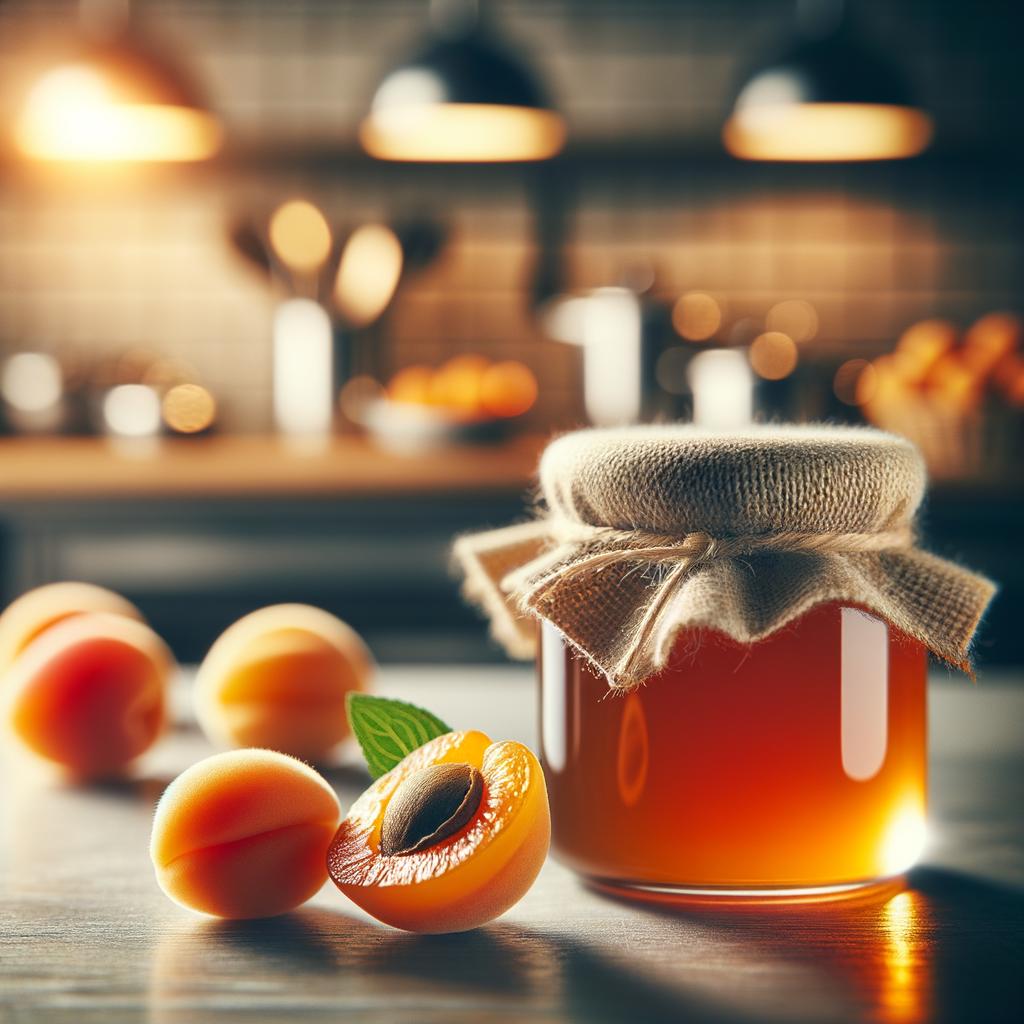Apricot Preserves

Description Apricot preserves are a delightful concoction of the golden-orange apricots, a fruit known for its velvety skin and sweet, slightly tart flavor. The preserves capture this essence in a spreadable form, where the apricots are cooked down with sugar and sometimes a touch of lemon juice. The result is a preserve with a bright, sunny color, a smooth texture interspersed with tiny bits of apricot, and a rich flavor that is both sweet and tangy. What sets apricot preserves apart from other fruit preserves is their uniquely delicate yet intense apricot flavor, which holds its own in a variety of culinary applications.
Primary Uses Apricot preserves are remarkably versatile in the kitchen. They are commonly used as a spread on toast or a filling in pastries and cakes. They also shine as a glaze for meats, particularly pork and chicken, imparting a sweet and savory balance to the dishes. In addition, they are a key component in classic French and Middle Eastern cuisines. Non-culinary uses include serving as a sweetener in homemade beauty treatments and as a traditional gift, symbolizing warmth and homey comfort.
History The apricot's journey started in ancient China, slowly making its way through the Middle East and eventually to Europe. The practice of preserving apricots likely arose in the Middle East, where the fruit was abundant. The Romans introduced apricots to Europe, but it wasn't until the 18th century that apricot preserves became popular in England. The tradition of making preserves was passed down through generations, and apricot preserves have since become a staple in many households around the world. There's an old folklore that eating apricot preserves on a slice of bread at the start of the day brings good luck.
Nutritional Information Apricot preserves offer a good amount of vitamins A and C, both of which are essential for overall health. They also provide a small amount of dietary fiber, thanks to the apricots. However, due to the sugar added in the preserving process, they should be consumed in moderation. Compared to similar fruit preserves, apricot preserves often have a higher vitamin A content due to the natural abundance of this nutrient in apricots. The sweet, romantic history of apricot preserves is a testament to their enduring popularity, a blend of nutrition and indulgence that continues to be enjoyed today.

